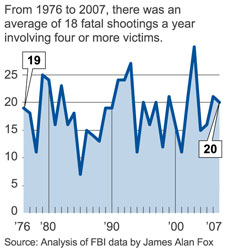I support Vermont style carry, as ideal. I agree with folks who argue that criminals will carry guns no matter what the law says. But the point of my previous post is finding a framework that works within the confines of Heller, such as this:
For example, the majority of the 19th-century courts to consider the question held that prohibitions on carrying concealed weapons were lawful under the Second Amendment or state analogues.
Now, this is dicta, which means it’s not legally binding precedent, but it’s quite likely to be latched on to by lower courts. We also have plenty of state cases that have long interpreted carrying a concealed firearm as outside of the right to bear arms. But The Court also says this:
Putting all of these textual elements together, we find that they guarantee the individual right to possess and carry weapons in case of confrontation. This meaning is strongly confirmed by the historical background of the Second Amendment.
My argument is essentially that open carry is actually a severe burden on the right to carry a firearm in case of confrontation, and probably was also a burden even when the practice started becoming accepted as social custom in the 19th century. The reason it became social custom is because it likely served as a signal, e.g. a quick way to discern someone with criminal intent from someone without criminal intent.
The various licensing scheme actually serve the same purpose, in that when law enforcement encounters someone who is armed, they have a quick way to sort friend from foe. It’s still just a signal. I think this can have implications for constitutional construction around Heller, in that perhaps the governments only interest is this kind of sorting function. If that’s the case, it doesn’t necessarily have to lead to licensing, thought hat’s one way to satisfy the interest.
But given the choice between constitutionally protected open carry with concealed carry being a privilege that can be subject to outright prohibition, or allowing the regulation of concealed carry, but not its prohibition, I think the latter is actually less destructive of the right.
I agree that’s not an ideal choice, but that could be what the courts force on us. Heller isn’t really to blame so much for this, as longstanding constitutional traditions that seem to allow government some measure of regulating arms carried in public. I think it behooves us to think about how to create a legal framework the courts will accept, but that protects the most amount of freedom.

